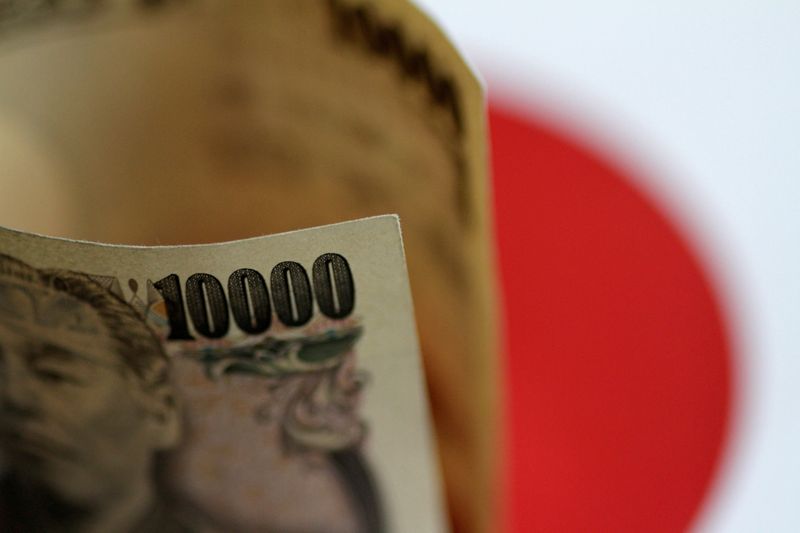By Kantaro Komiya and Tetsushi Kajimoto
TOKYO (Reuters) -Bank of Japan Governor Haruhiko Kuroda said rapid yen moves were undesirable after a meeting with Prime Minister Fumio Kishida on Friday, joining a chorus of policymakers lobbing verbal warnings over the currency's recent sharp drop to 24-year lows.
"Sharp currency moves are undesirable as they destabilise corporate business plans and heighten uncertainty," Kuroda told reporters after the meeting, which he described as an occasional catch-up by the two sides to discuss broad economic and financial matters.
"When the yen is moving 2 to 3 yen per day, that's a rapid move," Kuroda said, when asked about the Japanese currency's recent fluctuations.
The dollar jumped more than 2 yen on both Tuesday and Wednesday of this week, reaching 144.99 per dollar - its highest since August 1998 - before stabilising.
Kuroda's remarks helped to knock the dollar to its biggest one-day drop against the yen in a month, although the U.S. currency also retreated against other major currencies after a feverish climb in the dollar index to a 20-year high.
Japan's currency is particularly vulnerable while the Bank of Japan sticks to its policy of near-zero interest rates, focused on bolstering the economy while the central banks of other major developed economies hike rates to rein in inflation.
Verbal sabre-rattling is seen as one of the few viable near-term options for Japan to counter the yen's marked weakness, which is boosting the cost of fuel and other vital imports.
"We will watch exchange rate moves carefully," Kuroda told reporters after his Friday meeting with Kishida.
He added that, while he discussed market developments including currency moves with the premier, he did not receive any specific policy requests.
"By summoning Kuroda, the premier wanted to deliver a message that he is concerned about sharp yen falls," said Makoto Noji, chief foreign exchange strategist at SMBC Nikko Securities.
"Both know all too well that the weak yen stemmed from broad dollar gains, which no one can resist," he said. "While maintaining a fighting stance, Japan has no choice but to wait until the U.S. tightening cycle comes to a halt, once it has cooled down the economy."
The dollar fell to 143.10 yen following Kuroda's remarks and extended that drop as far as 142.43. It was last down about 1% at 142.60.
"Kuroda's remarks somewhat triggered the decline, which I suspect were likely caused by repositioning among retail foreign exchange investors and rebalancing of pension funds such as GPIF (Japan's Government Pension Investment Fund)," Noji added.

Prior to Kuroda's remarks, Finance Minister Shunichi Suzuki said on Friday that the government would not rule out any options on foreign exchange moves, repeating a warning by the country's top currency diplomat, vice finance minister for international affairs Masato Kanda, on Thursday.
"We've seen a rapid heightening of market volatility against the background of speculative moves," Suzuki told reporters, adding that authorities were "very concerned" about such moves.